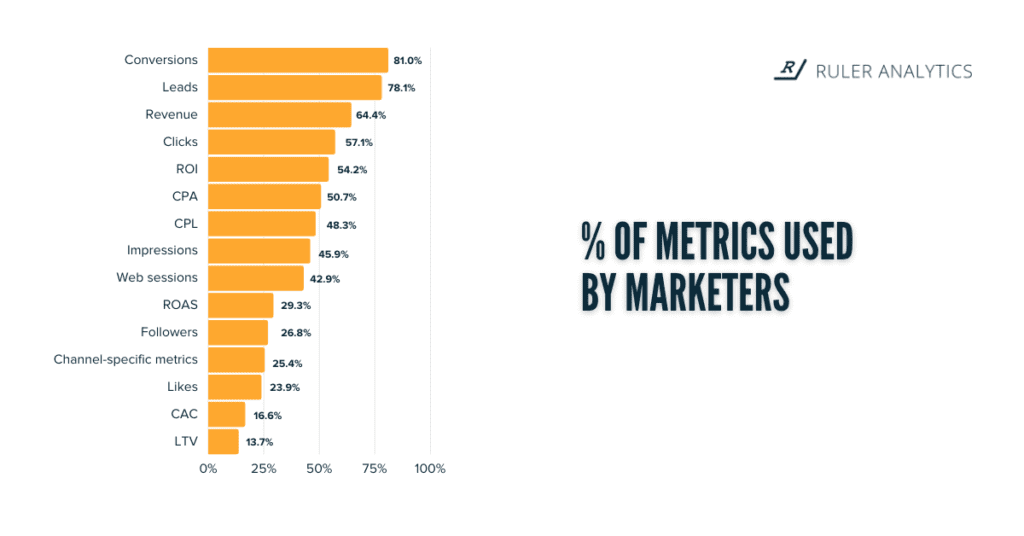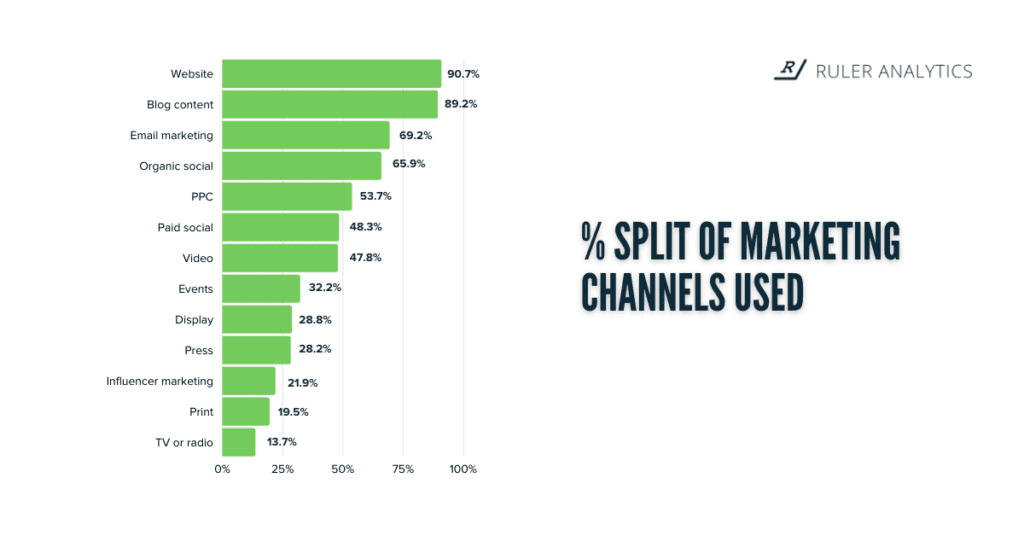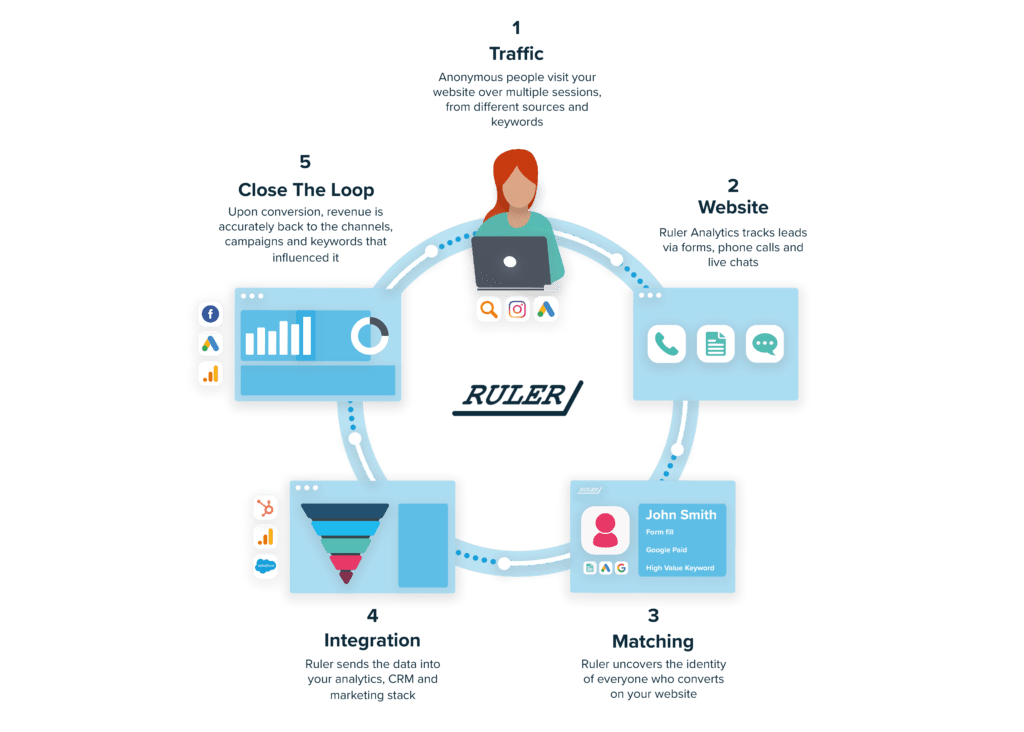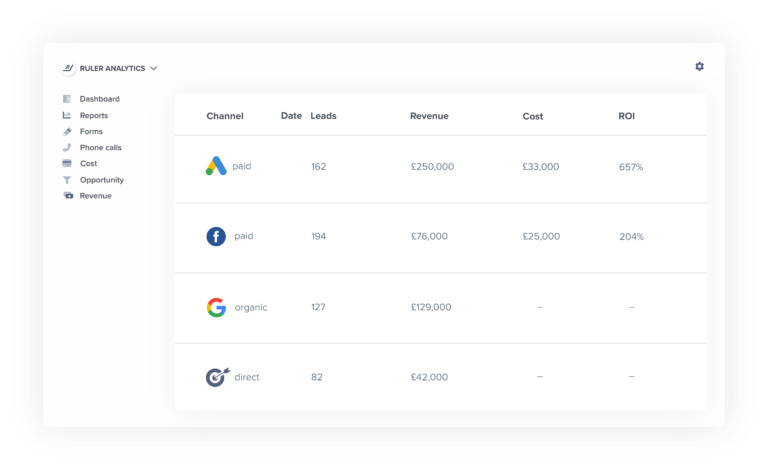With an ever-growing remit, marketers face a number of challenges. We discuss which marketing challenges are most widely felt thanks to recent research of over 200 businesses.
Marketing is fast-paced and it’s forever changing.
When marketers are always running to keep up, it can be hard to pause and reflect.
But by doing this, you can often identify areas you want to develop and look at how you can develop your marketing strategy.
While you might work in different industries and have different goals, understanding challenges other marketers are facing means you can reflect and tackle them yourself, head-on.
We surveyed over 200 marketers to find out more about how they report, the challenges they face and what they think would help them improve their outputs. What are the biggest marketing challenges in 2022? You’re about to find out!
Keep reading to learn:
⚡️ Pro Tip
We found some intriguing statistics around channels and conversions that marketers struggle to track. You can download the full report here.
In our survey, we found some intriguing data around the biggest marketing challenges felt in 2022. These included:
1. Generating high-quality leads
2. Proving ROI
3. Tracking offline conversions
4. Reaching the right audiences
5. Understanding lead quality
6. Creating mass content
7. Creating quality content
8. Proving ROAS
9. Obtaining budget
According to our survey, 37% of marketers find generating high-quality leads to be one of their biggest marketing challenges.
Related: Learn how to track your lead value
This was unsurprising to us after reading the full report. Our survey quickly illuminated that while marketers are great at recording lead volume, they struggle with lead quality and lead value.
For example, only 23% of marketers are confident they’re tracking the right KPIs. And it gets worse.
36% of marketers who use form submissions as a conversion tool struggle to track them. 62% of marketers who use phone calls as a conversion tool struggle to track them while 53% of marketers who use live chat as a conversion tool struggle to track it. That’s a huge number of conversions going untracked and unattributed.
There isn’t just the issue of tracking how many leads you’re generating.
If you can’t understand a conversion as part of a full customer journey and attribute closed revenue back to the source then you’re going to struggle to track ROI.
Related: How to track full customer journeys using Ruler
That leads us nicely onto our next point.
Return on investment isn’t an easy metric to track and measure.
In fact, 31% stated proving ROI was one of their biggest marketing challenges.
Of all our respondents, just 54% of marketers stated that they tracked ROI as a key marketing metric. That means quite a large proportion of those tracking ROI are struggling to do so.

And when 42% of marketers said they don’t use a marketing attribution tool, you can start to understand why.
We know 62% of marketers who use phone calls as a conversion tool struggle to track them which means a huge gap when it comes to proper tracking.
In fact, our recent Conversion Benchmark Report highlighted that the share of calls to forms sat at around 66% to 34%.
And for industries like travel, call share shot up to 85%. This highlights the huge opportunity for missed data in marketing.
Tracking conversions that happen offline, whether that’s by call or another method tends to be a B2B problem but 31% of marketers in our survey stated tracking offline conversions was one of their biggest marketing challenges.
Related: How to track offline conversions effectively
In fact, just 30% of our respondents stated that they used eCommerce as a conversion tool, meaning a huge number of marketers are dealing with offline conversions, or hard to track conversions like form fills and phone calls.
30% of respondents stated that reaching the right audiences was one of their biggest marketing challenges.
While marketing is all about sharing content on channels, there are a few caveats to that.
It needs to be the right channel, the right message and it needs to be sent to the right audience.
We’ve said it before and we’ll say it again, generating high-quality leads is hard work. Understanding which leads are high or low-quality is the first hurdle and our marketers agreed. 26% of respondents stated that understanding lead quality was one of their biggest challenges.
And when 37% of marketers find generating high-quality leads difficult, it’s easy to understand the correlation between this and understanding lead quality.
22% of marketers stated that creating a high quantity of content was one of their biggest challenges.
We found that our marketers use as many as 13 different channels.
That’s a huge amount of content to be generating. And when you struggle to track conversions and have difficulty understanding lead generation, you’re also going to have little visibility over which channels are driving the best results.
And that means spending more time on more channels because you can’t optimise your marketing.

Considering the difficulties marketers face over content quantity, we also found that 15% of respondents stated that creating quality content was one of their biggest marketing challenges.
Without a clear understanding of what’s working, how do you know what is ‘quality’ content?
Paid advertising is a great way for marketers to reach a targeted audience and drive traffic, leads and revenue.
However, 17% of marketers stated that proving ROAS was one of their biggest challenges.
Related: Get serious ROAS gains with attribution
With conversions cropping up as difficult to track, we’re not surprised by this statistic.
How often does a user click an ad and convert right away? Very rarely, right?
Without a full customer journey tracking tool in place, you’re not going to be able to accurately calculate your return on ad spend as you can’t see the role ads played in the beginning, middle or end of a customer journey.
While 17% of marketers found difficulties proving ROAS, it’s not surprising then that 18% of respondents stated that obtaining more budget was one of their biggest marketing challenges.
If you can’t prove the effectiveness of your marketing, particularly your paid advertising, then it’s going to be very difficult to get sign off for more budget.
We’ve identified a lot of marketing challenges here. But there’s a common thread that interlinks them. Data.
And our marketers agreed with us. 40% stated that more accurate data would improve their marketing outputs
But what data is missing?
We touched on it earlier, but marketers can track lead volume but aren’t so hot when it comes to tracking lead quality. And there’s a key reason for that.
Marketers that aren’t using a marketing attribution tool are missing out on key data. And even the ones who are using one, might not be getting everything they need from it.
With an attribution tool, you can track every conversion. No matter if that’s a phone call, a form fill or a live chat session.
In fact, our tool, Ruler Analytics allows you to track all of that, plus, how website visitors are engaging with your website.
Here’s a quick rundown of how it works.

Since Ruler allows you to accurately (and automatically) attribute closed revenue back to your analytics tools, all you need to do is log in and check which channels, campaigns and keywords are performing best.
You’ll quickly be able to identify issues with your marketing.
Whether you’re generating high traffic and low leads, or low traffic and high leads.
Or, if you’re generating high traffic, high leads but low sales. You’ll have all the data you need right in front of you to make better decisions and optimise your marketing.

👉 Book a demo to see this report in action
Marketing challenges will always exist.
There’ll always be a new channel to test out, or a new audience to try and target.
But key marketing challenges like those we’ve listed above no longer need to be a problem.
By integrating your website, your CRM and your analytics with Ruler Analytics you can get a holistic view of your marketing and how it directly (and indirectly) impacts sales.
Want to get started? Read more about how Ruler works by downloading our closed-loop eBook which explains how to ‘close the loop’ between your sales and marketing.
Or, get stuck right in by booking a demo with our team.